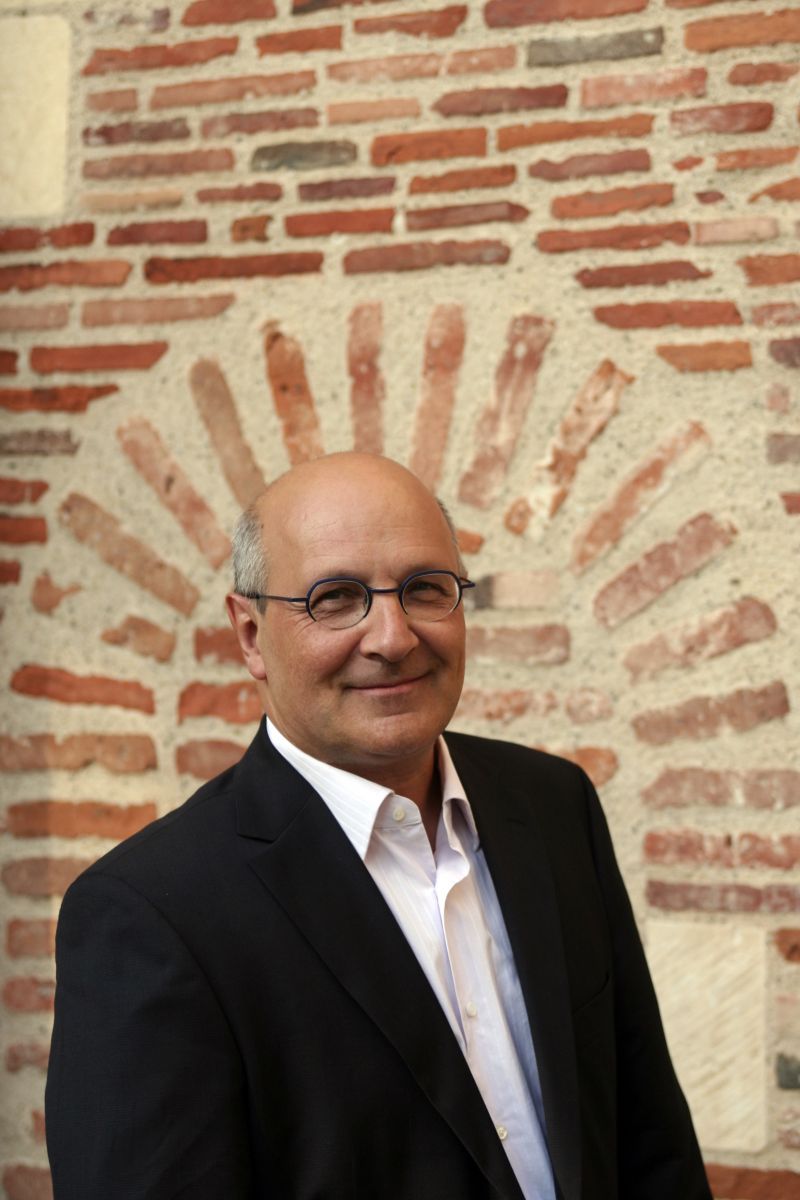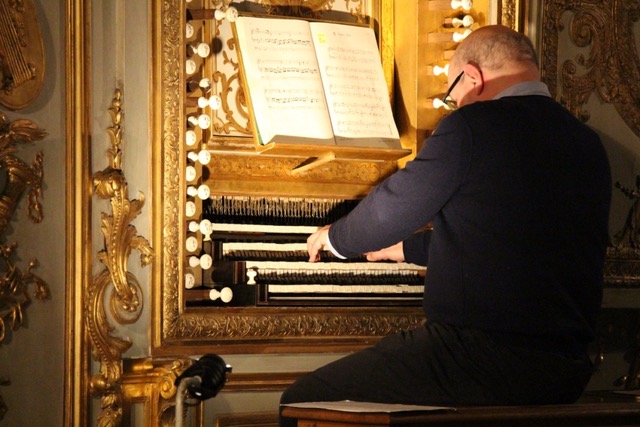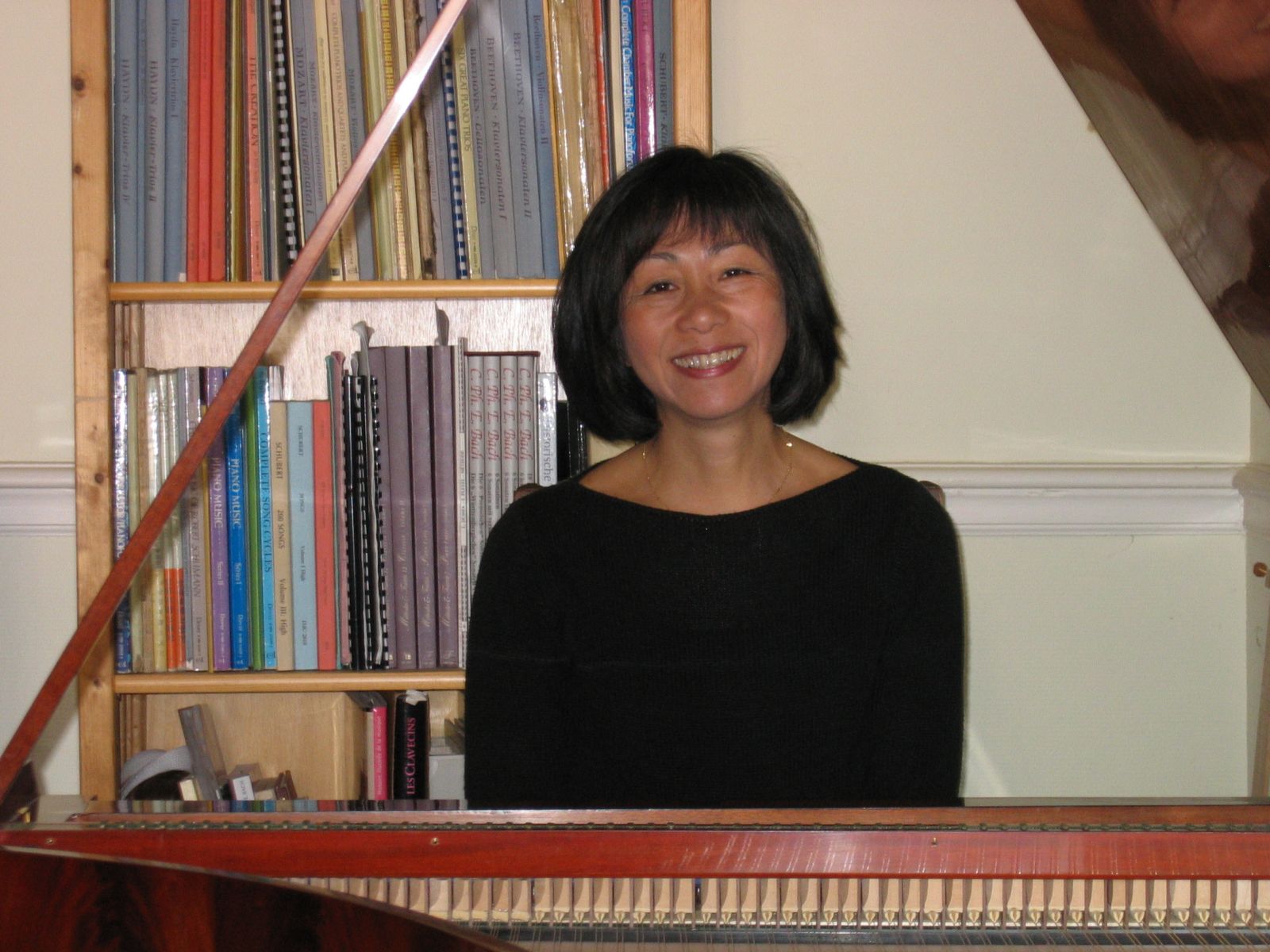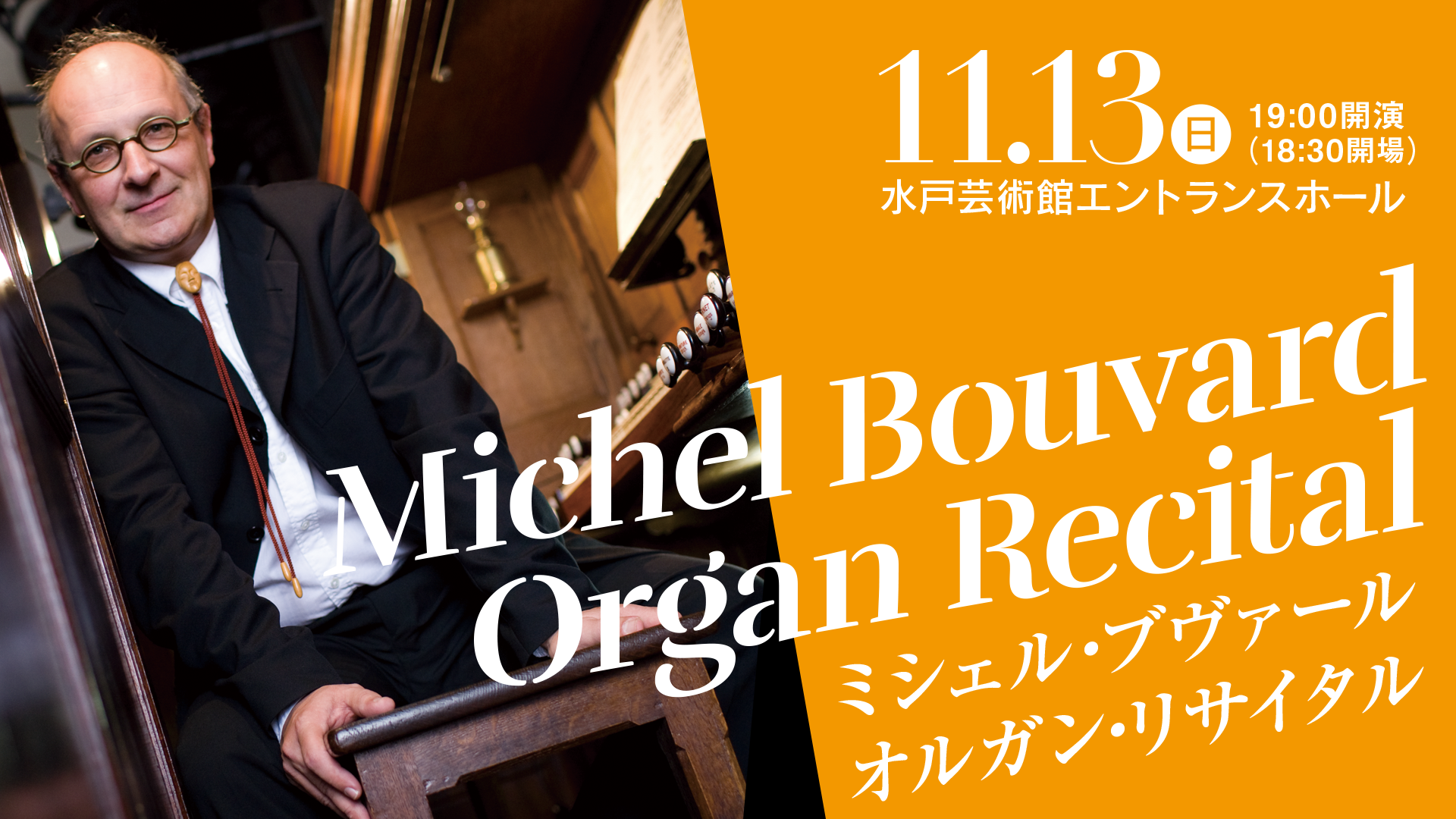- Concert
- Performance
2022-11-01 Update
【Artist Interview】Michel Bouvard (Organ)

--We are so honored to have you and Ms. Yasuko again in Mito after 8 years. Since 2020, we have experienced the global pandemic and unfortunately a lot of concerts had to be canceled around the world. As a musician, how do you think about the importance of music for human-being in those difficult times?
Thank you very much for this question, so relevant!
Yes I think that Music and Arts in general can play a huge role in people's lives, especially when their personal life situation is difficult! Music can play a role of "derivation" of the anguish, it can make people forget the inner torments, and by the emotion it provokes it can recall each person to the "essential" of his existence... Music can provoke tears of emotion, and sometimes it feels so good to cry! It allows to relativize the pains of the existence, and sometimes to become "positive" again!
--It is the 200th anniversary of César Franck this year. Could you tell us how Franck was innovative and creative in the history of organ music? It would be great if you could also explain the relation between Franck and Cavaillé-Coll.
Born in Liège in 1822, in a French-speaking region on the borders of Holland and Germany, the young César-Auguste received multiple influences. His musical training was clearly marked by the aesthetics of Beethoven, Schumann, Schubert, Mendelssohn, but also first J.S. Bach, and later in Paris by Liszt, Chopin... Having become organist at Sainte-Clotilde in 1859, with at his disposal an exceptional instrument by another genius, the organ builder Aristide Cavaille-Coll (1811-1899), then in full ascendancy, César Franck published his 6 pieces for organ in 1864, on Liszt's advice. It was a blessing for France because it raised the level of music. Of these 6 pieces, totally inspired by the organ of Saint Clotilde, we will hear the most famous: prelude, fugue and variation.
The inauguration of the giant organ built by Cavaillé-Coll for the Palais du Trocadéro in Paris (Universal Exhibition of 1878) gave him the opportunity to compose three new pieces for organ.
Finally, in 1890, in a last period once again devoted to the pipe instrument, Franck delivered to the musical world three masterful works, each lasting about fifteen minutes, the 3 Chorals. These are all large-scale frescoes, with several main themes that are juxtaposed and then superimposed in an art comparable to the highest Beethovenian level. But there are also a host of "secondary" characters, as in Molière's plays, sometimes even hidden, but who
regularly return to ensure the unity of the work. We will hear the 3rd Choral, at once brilliant, poetic, and dramatic. It is the last work written by César Franck in September 1890. A few weeks later he died.
--You have suggested a wonderful program of German and French repertoires for the concert in Mito. Could you please introduce some of the pieces? Also, the program includes two pieces composed by Mr. Jean Bouvard, your grandfather. The audience of Mito will listen to “Noël vosgien” for the first time. It would be nice if you could mention that piece too. Is there a variety of melody of Noël in each region in France?
Indeed, I did not want to play only César Franck, although we will celebrate his bicentenary in 2022, but I thought it would be more interesting for the audience of Mito to hear also French and German music written before and after him. Indeed, César Franck received a double training, German as a composer and French as an organist, and he himself had an influence on his successors.
Thus, being myself an organist at the Chapelle Royale of the Chateau de Versailles, I am happy to begin the concert with Louis MARCHAND's Grand Dialogue, which evokes the great French style of Louis XIV, and then, with a "third hand" from my wife Yasuko, our adaptation of François Couperin's two Musettes, originally written for two harpsichords.

Mr. Bouvard & the Chapelle Royale of the Chateau de Versailles
Bach is a "must", but I have chosen to play the spectacular transcriptions (made by my master André Isoir) of Bach's Concerto for four harpsichords and Orchestra, and the Aria from the Suite in D. With Mozart, we remain in an adaptation for the organ of a Divertimento for wind instruments, from the transcription for piano for four hands made by Mozart himself.
To continue the concert we will return to France, first with two Noëls by my grandfather Jean Bouvard (1905-1996) who was an organist and composer in Lyon. Continuing the age-old tradition of French organists, he liked to use pretty popular Christmas melodies, as there are dozens in France, attached to each region.
Finally we will end with one of Messiaen's absolute masterpieces: "Dieu parmi nous", the last piece of the Nativity (1934).
--Could you give some message to the fan who are looking forward to your recital?
I have fond memories of my first concert in Mito in 2014. So I am very happy to come back there. The world has changed so much in 8 years!
And I am also especially happy to play some 3 and 4 hand pieces with my wife Yasuko.
 Uyama=Bouvard Yasuko
Uyama=Bouvard YasukoIt has been more than 40 years since I first came to Japan, and then very often and regularly to visit our Japanese family.
I have designed and prepared an original and attractive program around César Franck, and I would like to invite all the music-loving public of Mito to join us for this "musical sharing".
I love Japan from the bottom of my heart, and it is a great honor and pleasure to play for you!
Interviewer: Maki Takasu
(Mito Arts Foundation)
September 3, 2022
© 2022 MITO ARTS FOUNDATION All Rights Reserved.
Michel Bouvard Organ Recital
November 13, 2022
For more information, click here

